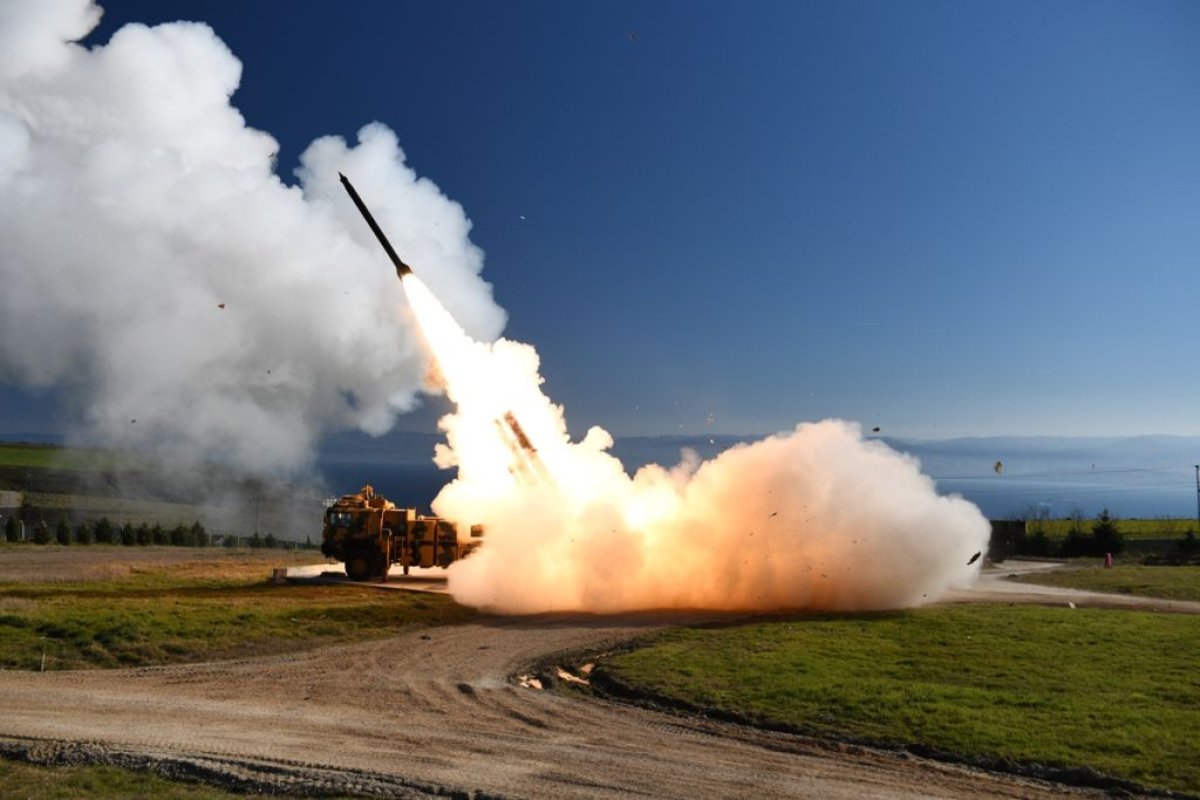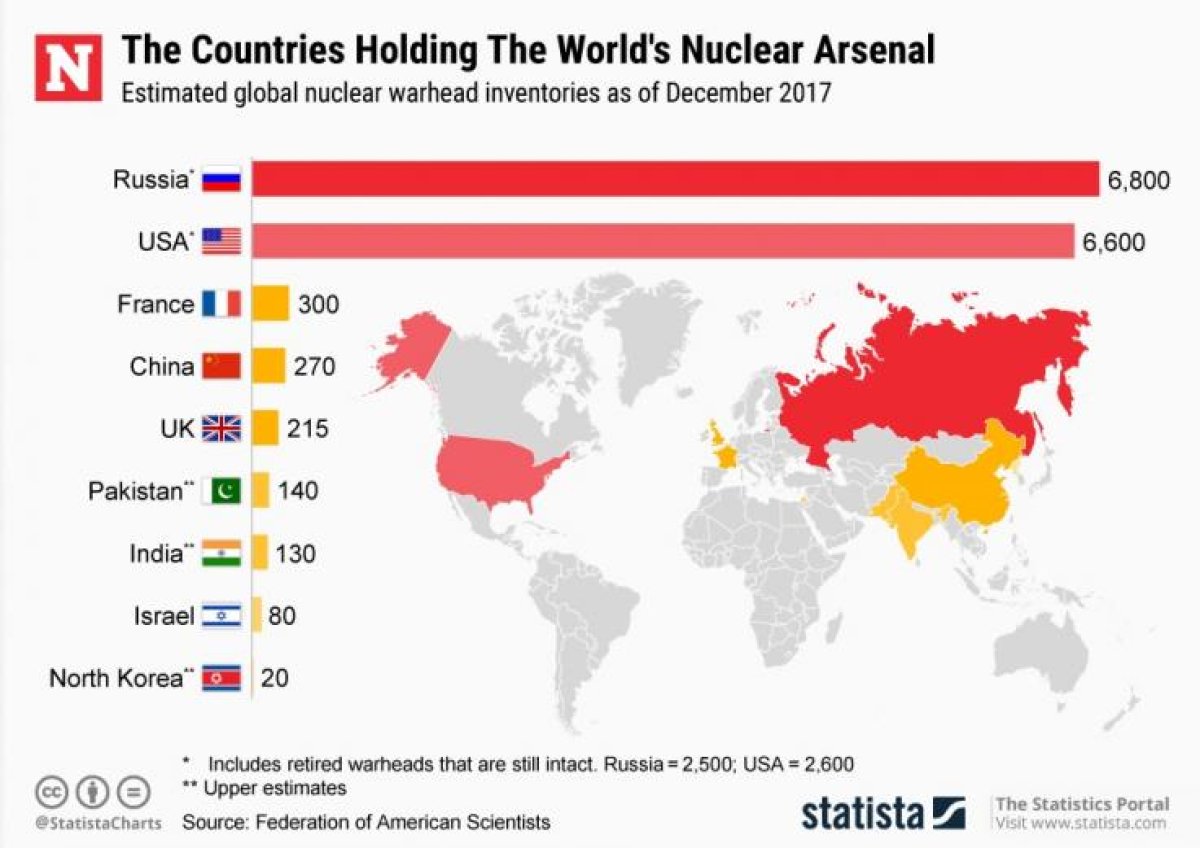Turkish President Recep Tayyip Erdogan has argued that his country should be allowed to develop nuclear weapons as other major powers have.
Addressing the Central Anatolian Economic Forum in the central province of Sivas, Erdogan lauded the expansion of the Turkish defense industry, especially recent conversations with the United States and Russia, while hinting at future talks with China. He then recalled how "some countries have missiles with nuclear warheads" and "not just one or two."
"But I cannot possess missiles with nuclear warheads? I do not accept that," Erdogan said. "Right now, nearly all the countries in the developed world have nuclear missiles."
The U.S. currently has an estimated 50 of its nuclear weapons deployed to Turkey as part of the NATO Western military alliance's nuclear sharing policy, according to an accidentally-released NATO report published in July by Belgian newspaper De Morgen. The weapons, located at Incirlik Base, are under U.S. control, but some have raised concerns as to their safety there amid regional instability and political differences.

In 1980, Turkey signed the Non-Proliferation Treaty (NPT) opposing nuclear weapons in the hands of countries other than "recognized powers" that include Russia, the U.S., France, the U.K. and China. Still, other powers such as India, Pakistan, North Korea and Israel were all believed to have developed and be in possession of such weapons of mass destruction.
Though a member of NATO since 1952, Turkey has strained ties with other members of the Cold War-era defense pact by shoring up relations with Russia, against whom the nuclear sharing agreement was conceived. Ankara recently defied Washington's warnings by accepting Moscow's state-of-the-art S-400 surface-to-air missile system, which the Turkish Defense Ministry said Wednesday its personnel had started training on in the Russian town of Gatchina.
President Donald Trump hit back at Turkey's acquisition in July by suspending the country's planned participation in the advanced F-35 fifth-generation fighter jet program, but Russian President Vladimir Putin responded by showing off his nation's own fifth-generation Su-57 and modernized Su-35 during Erdogan's visit last week to the International Aviation and Space Show (MAKS) at the Zhukovsky International Airport outside Moscow.
After inspecting the Su-57, Erdogan asked if it was for sale and Putin said "yes, you can buy it" as they both laughed.

Turkey has continued to display interest in U.S. weapons too, however, and Erdogan also said Wednesday he would discuss buying the Patriot surface-to-air missile system with Trump at the upcoming United Nations General Assembly. He said, however, he would only buy the system "under the same conditions" offered to him by Russia during the S-400 purchase.
Ankara also worked alongside both Washington and Moscow in Syria, where all three nations have competing interests. Turkey has remained the last major foreign sponsor for insurgents once backed by the U.S. and a number of its regional allies in a bid to unseat Syrian President Bashar al-Assad, but has at the same time joined Assad allies Russia and Iran as part of a trilateral peace process.
Following a phone call Wednesday with White House nationals security adviser John Bolton, Turkish spokesperson Ibrahim Kalin said his country had "completed its preparations to put into action without delay" a proposed safe zone designed to allow the withdrawal of U.S.-backed Kurdish forces, some of which were designated terrorist organizations by Ankara, from the Syrian border with Turkey.
Uncommon Knowledge
Newsweek is committed to challenging conventional wisdom and finding connections in the search for common ground.
Newsweek is committed to challenging conventional wisdom and finding connections in the search for common ground.
About the writer
Based in his hometown of Staten Island, New York City, Tom O'Connor is an award-winning Senior Writer of Foreign Policy ... Read more
To read how Newsweek uses AI as a newsroom tool, Click here.








